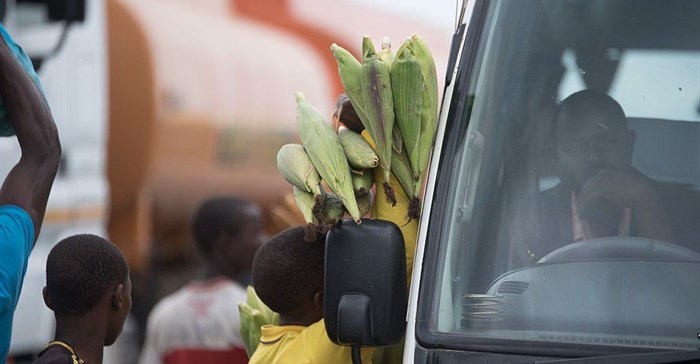
Geita District Agriculture officer John Kengele says the plan in 2016/17 was to cultivate 91,045 hectares of cereal crops and 38,500 hectares of leguminous plants. But only 83,862 hectares of cereal crops were grown and 162,626 tonnes were harvested. According to Kengele, 31,088 hectares of leguminous plants were cultivated and 63,826 tonnes. "The demand for cereals is 167,153 tonnes while that of legumes is 64,285 tonnes annually, but in the 2016/17 harvest season we had a shortfall of 4,497 tonnes cereals and 459 tonnes of legumes," he says.
That was because an outbreak of fall armyworms and poor rain cut production.
The Ministry of Agriculture has been informed so as to tackle pests. "The district council has called on farmers to use pesticides and burn crop residues after harvesting in an effort to wipe out pests. If favourable rain comes, bumper harvests will be guaranteed," he hopes.
The Commission for Science and Technology (Costech) in cooperation with Ilonga Agricultural Research Institute have produced water-efficient maize seeds under the Water Efficient Maize for Africa (Wema) project. Trials have been made and Isamilo villagers at Kamwanga Ward in Geita District are happy with results. Their Muungano Group was given Wema 2,109 maize seeds, which were sowed on 30 November 2017 in one acre.
Group member Khamisi Kingi says: "We followed instructions including using fertilisers during sowing and for growth periods. Seeds germinated completely, but we had to spray pests until the plants survived. We expect to harvest between 15 and 17 bags in an acre.
"The crops were attacked by fall armyworms because we sowed the seeds in November and December, the time when most pests emerge. Maize seeds planted before November were not affected."
According to Kingi, Wema seeds are resistant to diseases and drought. "Local seeds are more vulnerable to attacks than Wema seeds. We also faced drought but we expect to harvest more than 15 bags from every acre, while previously we harvested three to five bags."
Another group member Francis Mwahekela believes Wema seeds can avert famine. "The new maize variety is resistant to diseases and drought, unlike the traditional maize. Had we planted traditional maize seeds, fall armyworms would have gobbled up all of them."
According to group secretary Methusela Linti, Muungano started on 20 June 2017 with 30 members: 13 of them being women and 17 men. Their aim is to cooperate in improving farming. "Our intention is acquiring agricultural knowledge to increase production." He speaks of challenges such as poor weather, pests and the scarcity of farm inputs.
Costech social science director Joyce Nyoni says the aim of the institution is to disseminate research findings for the community. "Since maize is the staple, we have funded the research to improve its production," Nyoni. "Whatever positive is obtained from this field trial, villagers are going to share for the whole region and finally the whole country to increase maize production."
Geita assistant administrative secretary Emil Kasagala hopes the new maize variety will make the region great: food shortages will end and the surplus will be sold to other regions. "Our yields have been low; you produce two or three bags in an acre. Now we expect to produce more within small areas."
The Wema project was formed in response to a growing call by African farmers, leaders, and scientists to address the effects of drought and insect-pest pressure in a cost-effective way for smallholder farmers in Africa.
Wema uses three breeding approaches: conventional; marker-assisted; and genetic modification. The project focuses on developing, field testing and deploying new maize hybrids in Kenya, Mozambique, South Africa, Tanzania and Uganda.
In Tanzania already seeds have produced through the conventional method, while the genetic modification is underway at ARI Makutupora in Dodoma.
Read the original article on Citizen.

AllAfrica is a voice of, by and about Africa - aggregating, producing and distributing 2000 news and information items daily from over 130 African news organisations and our own reporters to an African and global public. We operate from Cape Town, Dakar, Lagos, Monrovia, Nairobi and Washington DC.
Go to: http://allafrica.com/